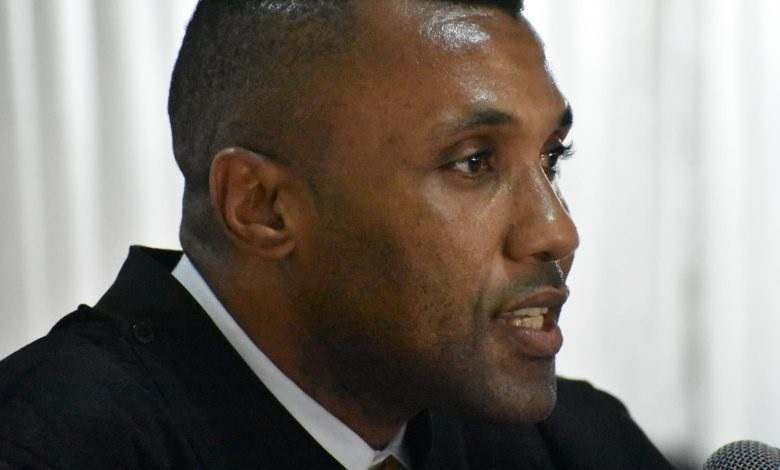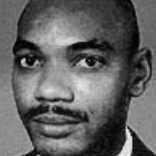Mozambique | Siba-Siba murder: Trial now looks unlikely - AIM report
Hidden debts: Bar Association attacks judge – AIM report

FILE PHOTO - For illustration purposes only. [File photo: Domingo]
The Mozambican Bar Association (OAM) on Tuesday launched an unprecedented attack against judge Efigenio Baptista, of the Maputo City Court, calling him a “tyrant” and an “authoritarian”.
The OAM chairperson, Duarte Casimiro, launched the broadside against the judge at a Maputo press conference, just four days after Baptista had expelled two lawyers, Salvador Nkamate and Jaime Sunda, from his courtroom for insulting him and challenging his authority.
On trial before Baptista are 19 people charged with financial crimes arising from the scandal of Mozambique’s “hidden debts”. The OAM is an “assistente” in the trial – which means it is supposed to assist the Public Prosecutor.
But instead the OAM has been acting as if it is a trade union for lawyers. On Mozambican social media, it has been repeatedly accused of siding with the defendants, rather than helping the prosecution.
Casimiro accused the judge of “attacking lawyers by resorting to an abuse of judicial power”. He claimed the threats made by Baptista seek to limit the exercise of lawyers’ rights, as enshrined in the Mozambican constitution.
“The judge finds it difficult to give room to lawyers to speak, when they intend to tackle particular questions, when they take a position that is different from his”, Casimiro claimed. “In a clear abuse of power he stops the lawyers from speaking, and threatens to remove them from the court room if they insist on complaining”.
Accusing Baptista of a lack of professional ethics, he declared “it is not the role of the judge to give lessons”.
Casimiro’s attack bears no resemblance to what happened in the courtroom on Friday. The problem arose because one of the witnesses, Fanuel Paunde, is a lawyer who had, in the past represented one of the accused, Renato Matusse, once a political adviser to former President Armando Guebuza.
Under Mozambican law, lawyers may only violate their duty of confidentiality to their clients, if they receive authorization from the OAM. Paunde was concerned that, if he testified, the OAM might bar him from practicing law.
The OAM itself expressed concern that it had not been approached – but Baptista retorted that “the Bar Association does not give orders to the Court”.
He said the duty of confidentiality only arises in those cases where Paunde had been acting as a lawyer. But the court intended to question him about other matters, in which he had been acting as a business executive.
For Paunde is the majority shareholder and managing director of the company Okanga Representacoes Ltd., and Matusse had been one of Okanga’s clients. The notification from the public prosecutor’s office, summoning Paunde to testify, clearly stated that the issue at stake was his work as an Okanga director,
This did not satisfy Nkamati, who is Matusse’s lawyer. He insisted that the Court was acting “illegally” by violating the statutes of the OAM, which have the force of law.
Baptista retorted that the article in the Statutes quoted by Nkamati only applies in matters where Paunde was acting as a lawyer. “So if your premise is wrong, so is your conclusion”, he declared.
Nkamati continued to interrupt Baptista, and so the judge warned that he would be thrown out of the courtroom. Nkamati stood up to leave, declaring “I’m not staying here to listen to this ignorance”.
Baptista ordered Nkamati’s removal, adding that copies of Nkamati’s insulting remarks will be sent to the Public Prosecutor so that he can be charged with contempt of court.
Jaime Sunda was less belligerent than Nkamati, He declared that Paunde had been wrongly notified, and that the summons should have gone to Okanga, rather than to its director. Baptista ruled him out of order, but Sunda continued to interrupt the judge, and declared “the Court must learn how to listen”.
Baptista regarded this too as an insulting remark, and accused Sunda of “lack of respect”. Sunda continued to interrupt Baptista, as if he were asking the judge to throw him out. Baptista obliged and Sunda joined Nkamati outside the courtroom.
“It is the judge, and not the lawyer, who is presiding over this trial”, Baptista declared.
Casimiro claimed that the judge had shown contempt for the OAM, and wanted to reduce its role in the trial to that of a mere appendage of the Public Prosecutor, rather than “following the law, the public interest and justice”.
Among Casimiro’s most serious allegations were that Baptista is threatening the integrity of the trial, and even that sentences against the accused have been drawn up in advance. He did not offer the slightest shred of evidence for this defamatory claim.
At no stage did Casimiro make any criticism of any of the defence lawyers – even though one lawyer, Alexandre Chivale, has disobeyed a summons to appear as a witness.
Chivale began the trial as the lawyer for some of the most high-profile defendants, including Ndambi Guebuza, the oldest son of former President Armando Guebuza, and Antonio Carlos do Rosario, the head of economic intelligence at the security service, SISE.
But on 19 October, Baptista ordered Chivale to leave the case, on the grounds of serious conflicts of interest. He was responding, rather belatedly, to a request made on the first day of the trial, 23 August, when prosecuting attorney Sheila Marrengula asked the judge to take action against Chivale because he is a director of Txovela Investments, a company effectively run by Rosario which has close links to the Abu Dhabi based group Privinvest.
Marrengula argued that Txopela is one of the channels for distributing bribes from Privinvest. After Rosario’s arrest, properties registered in his name were seized – but, much to the prosecution’s annoyance, they were handed over to Txopela Investments, as the “bona fide depositary”, despite Txopela’s close relations with Rosario.
In October, Baptista agreed with the prosecution that it was intolerable to allow Txopela to continue running the properties. Txopela, he pointed out, “is accused of money laundering, and that money was used to buy property, including the flat where Alexandre Chivale is now living”.
Chivale had to surrender the flat, and the keys to all Txopela properties. Baptista also threw Chivale off the case altogether because of his conflicts of interest.
Now Chivale is wanted back in court – but as a witness, not a lawyer, to testify to the activities of Txopela investments, in which he was a director. A court officer tried to serve a summons on Chivale, without success, and so in January Baptista issued a warrant for his arrest.
Nothing in Chivale’s behaviour seemed to cause Casimiro any concern.












Leave a Reply
Be the First to Comment!
You must be logged in to post a comment.
You must be logged in to post a comment.